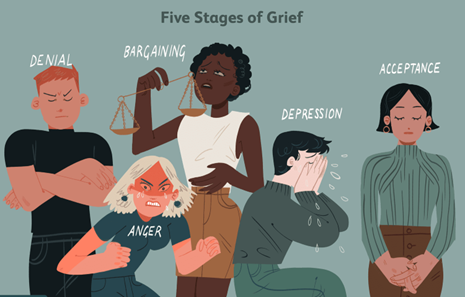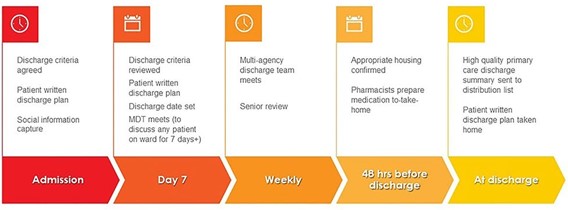A nurse is caring for a client who has been diagnosed with end-stage liver cancer. Which of the following responses is an indication the client is in the denial phase of the grief process?
I need someone near me all the time, l am very tired.
The doctor has been so good to me. I know he has tried everything he can. It is just my time.
The doctor says only have a few months to live, but know he is exaggerating to get me to take my medication.
Even though am not hurting right now, I don't feel like I have the energy to get out of bed.
The Correct Answer is C
This statement shows that the client is not accepting the reality of their prognosis and is dismissing the doctor's professional opinion. Denial is a common stage in the grief process where individuals may refuse to believe or accept a difficult reality, often as a coping mechanism to avoid the pain and sadness of the situation. Options a, b, d, and e do not indicate denial and instead may suggest fatigue, acceptance, physical weakness, and anger or frustration, respectively.

Nursing Test Bank
Naxlex Comprehensive Predictor Exams
Related Questions
Correct Answer is A
Explanation
Chronic anxiety is a persistent feeling of unease, worry, or fear that can interfere with daily life. To manage chronic anxiety, the client needs to identify anxiety-producing situations that trigger their symptoms. This can help the client avoid or cope better with these situations. It is important to note that it is not always possible to eliminate stress and anxiety from daily life, so it is better to focus on managing it effectively.
Trying to repress feelings of anxiety is not a helpful strategy and can make the client's symptoms worse in the long run. Repressing emotions can lead to feelings of frustration, irritability, and even physical symptoms such as headaches or muscle tension.
Contacting the crisis counselor once a week may be helpful for some clients, but it is not a standard recommendation for all clients with chronic anxiety. The discharge plan should include personalized recommendations that are tailored to the client's specific needs and circumstances.

Correct Answer is A
Explanation
Agoraphobia is an anxiety disorder characterized by the fear or avoidance of situations or places where escape might be difficult or help may not be available in the event of a panic attack or other distressing symptom. Individuals with agoraphobia may have intense anxiety or panic symptoms in places such as crowded areas, enclosed spaces, public transportation, open spaces, or places far away from home.
Option b refers to social anxiety disorder.
Option c refers to specific phobia.
Option d refers to obsessive-compulsive disorder.

Whether you are a student looking to ace your exams or a practicing nurse seeking to enhance your expertise , our nursing education contents will empower you with the confidence and competence to make a difference in the lives of patients and become a respected leader in the healthcare field.
Visit Naxlex, invest in your future and unlock endless possibilities with our unparalleled nursing education contents today
Report Wrong Answer on the Current Question
Do you disagree with the answer? If yes, what is your expected answer? Explain.
Kindly be descriptive with the issue you are facing.
